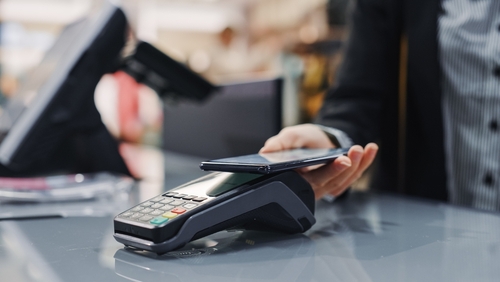The Consumer Financial Protection Bureau (CFPB) issued a new report Thursday looking at the impacts companies like Apple and Google have had on payment systems from mobile devices like smartphones and watches.

Currently, Apple forbids banks and payment apps from accessing the tap-to-pay functionality on Apple iOS devices and imposes fees through Apple Pay. Google’s Android operating system does not have a similar policy. The CFPB’s report highlights how regulations imposed by mobile operating systems can impact innovation, consumer choice and the growth of open and decentralized banking and payment systems in the United States.
“Regulations imposed by Big Tech firms have a big impact on whether consumers and businesses can make payments using third-party apps,” CFPB Director Rohit Chopra said. “We are carefully evaluating Big Tech’s role in our banking and payments system.”
As of the second quarter of 2023, 55 percent of smartphones shipped in the United States contained Apple’s iOS operating system, while Google’s Android was on the other 45 percent. These two companies set regulations that govern app developers ability to integrate near field communication (NFC) technology into their apps, which is needed for tap-to-pay transactions. When combined with the increasing shift toward mobile device payment, the dominant market share the two company hold on operating systems show how important their role in policies and practices is in retail payment systems.
The report also found that tap-to-pay options have grown to nearly $300 billion in consumer usage, with some analysts predicting that tap-to-pay transactions will grow by over 150 percent in the next five years. The report also found that restrictive tap-to-pay policies, may reduce consumer choice and inhibit progress toward more robust open banking ecosystems where consumers have more control over their personal finance information, and developers create payment solutions to meet consumer needs.